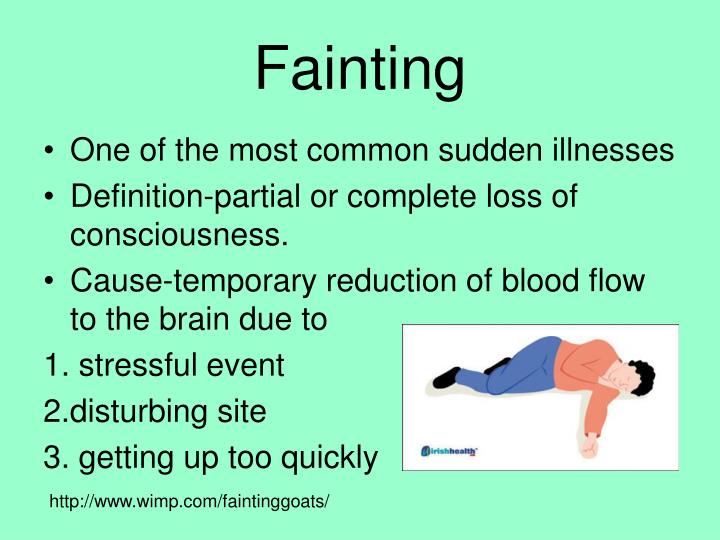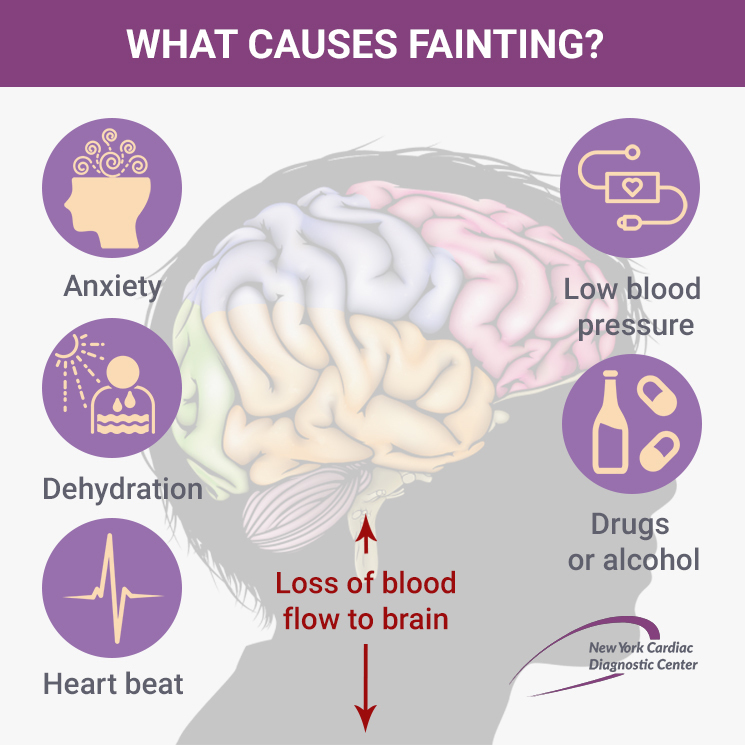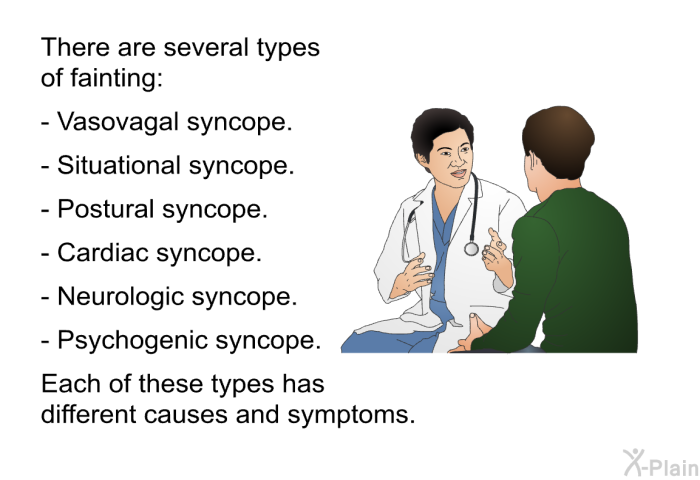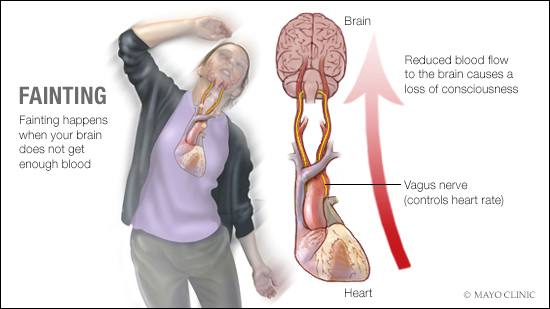The Enigma of Frequent Fainting: Understanding the Causes and Implications
Related Articles: The Enigma of Frequent Fainting: Understanding the Causes and Implications
Introduction
With enthusiasm, let’s navigate through the intriguing topic related to The Enigma of Frequent Fainting: Understanding the Causes and Implications. Let’s weave interesting information and offer fresh perspectives to the readers.
Table of Content
The Enigma of Frequent Fainting: Understanding the Causes and Implications

Fainting, also known as syncope, is a sudden, temporary loss of consciousness caused by a decrease in blood flow to the brain. While occasional fainting can be attributed to various benign factors, experiencing syncope multiple times a day presents a significant concern, demanding immediate medical attention. This article delves into the multifaceted nature of frequent fainting, exploring its potential causes, associated risks, and the importance of seeking prompt diagnosis and treatment.
Understanding the Mechanisms of Fainting
Fainting occurs when the brain experiences a brief interruption in its blood supply. This interruption can be triggered by a multitude of factors, including:
-
Vasovagal Syncope: This is the most common type of fainting, often triggered by emotional stress, pain, or prolonged standing. It involves a sudden drop in blood pressure and heart rate due to an overreaction of the autonomic nervous system.
-
Orthostatic Hypotension: This condition refers to a drop in blood pressure upon standing, leading to dizziness and fainting. It can be caused by dehydration, medications, or underlying medical conditions.
-
Cardiac Syncope: Fainting related to heart problems can be caused by arrhythmias (irregular heartbeats), heart valve disorders, or other cardiovascular abnormalities.
-
Neurological Syncope: Certain neurological conditions, such as seizures, migraines, or brain tumors, can also cause fainting episodes.
-
Metabolic Syncope: Fainting can be a symptom of low blood sugar, anemia, or other metabolic disturbances.
The Significance of Frequent Fainting
Experiencing fainting multiple times a day is a serious concern that cannot be ignored. It can indicate an underlying medical condition requiring prompt diagnosis and treatment.
Potential Risks Associated with Frequent Fainting
-
Increased Risk of Injury: Recurrent fainting episodes can lead to falls and head injuries, especially if they occur without warning.
-
Underlying Medical Conditions: Frequent fainting can be a sign of a more serious health issue, such as heart disease, neurological disorders, or metabolic imbalances.
-
Reduced Quality of Life: Fear of fainting can significantly impact daily activities, social interactions, and overall well-being.
Seeking Medical Attention
If you or someone you know experiences frequent fainting, it is crucial to seek immediate medical attention. A thorough evaluation by a healthcare professional is essential to determine the underlying cause and recommend appropriate treatment.
The Diagnostic Process
A doctor will conduct a comprehensive evaluation, including:
-
Medical History: The doctor will inquire about the frequency, duration, and circumstances surrounding the fainting episodes.
-
Physical Examination: A physical examination will assess vital signs, heart rhythm, and neurological function.
-
Electrocardiogram (ECG): This test records the electrical activity of the heart, helping to identify any arrhythmias.
-
Blood Tests: Blood tests can reveal potential causes such as anemia, low blood sugar, or infections.
-
Imaging Studies: Depending on the suspected cause, imaging tests such as an echocardiogram or MRI may be recommended.
Treatment Options for Frequent Fainting
Treatment for frequent fainting depends on the underlying cause. Some common approaches include:
-
Lifestyle Modifications: Adjustments to lifestyle factors such as diet, hydration, and exercise can help manage conditions like orthostatic hypotension.
-
Medications: Medications may be prescribed to address underlying conditions such as arrhythmias, low blood pressure, or anxiety.
-
Pacemaker or Defibrillator: In cases of cardiac syncope, a pacemaker or defibrillator may be implanted to regulate heart rhythm.
-
Cognitive Behavioral Therapy: Cognitive behavioral therapy can help manage anxiety and stress, which can contribute to vasovagal syncope.
FAQs Regarding Frequent Fainting
Q: Can fainting be caused by stress or anxiety?
A: Yes, stress and anxiety can trigger vasovagal syncope, a common type of fainting. The body’s response to stress can lead to a rapid drop in blood pressure and heart rate, causing fainting.
Q: Can dehydration lead to fainting?
A: Dehydration can contribute to orthostatic hypotension, a condition where blood pressure drops upon standing, leading to fainting.
Q: Is fainting contagious?
A: Fainting itself is not contagious. However, witnessing someone faint can trigger a vasovagal response in others, leading to fainting in some individuals.
Q: Can fainting be a sign of a serious medical condition?
A: Yes, frequent fainting can be a sign of underlying medical conditions such as heart disease, neurological disorders, or metabolic imbalances.
Tips for Preventing Fainting
-
Stay Hydrated: Drink plenty of fluids throughout the day, especially during hot weather or after exercise.
-
Avoid Prolonged Standing: If you need to stand for long periods, take frequent breaks to sit or lie down.
-
Manage Stress: Engage in stress-reducing activities such as exercise, meditation, or spending time in nature.
-
Monitor Medications: Discuss potential side effects of medications with your doctor, as some medications can contribute to fainting.
Conclusion
Frequent fainting is a serious concern that demands immediate medical attention. It is crucial to understand the underlying causes, associated risks, and available treatment options. By seeking prompt diagnosis and treatment, individuals can address the underlying medical conditions and reduce the risk of complications associated with recurrent fainting episodes. Remember, proactive management and close collaboration with healthcare professionals are essential for maintaining health and well-being in individuals experiencing frequent fainting.
:max_bytes(150000):strip_icc()/1298399-article-img-causes-of-fainting1-5a5520127bb283003773f0c9.png)







Closure
Thus, we hope this article has provided valuable insights into The Enigma of Frequent Fainting: Understanding the Causes and Implications. We appreciate your attention to our article. See you in our next article!